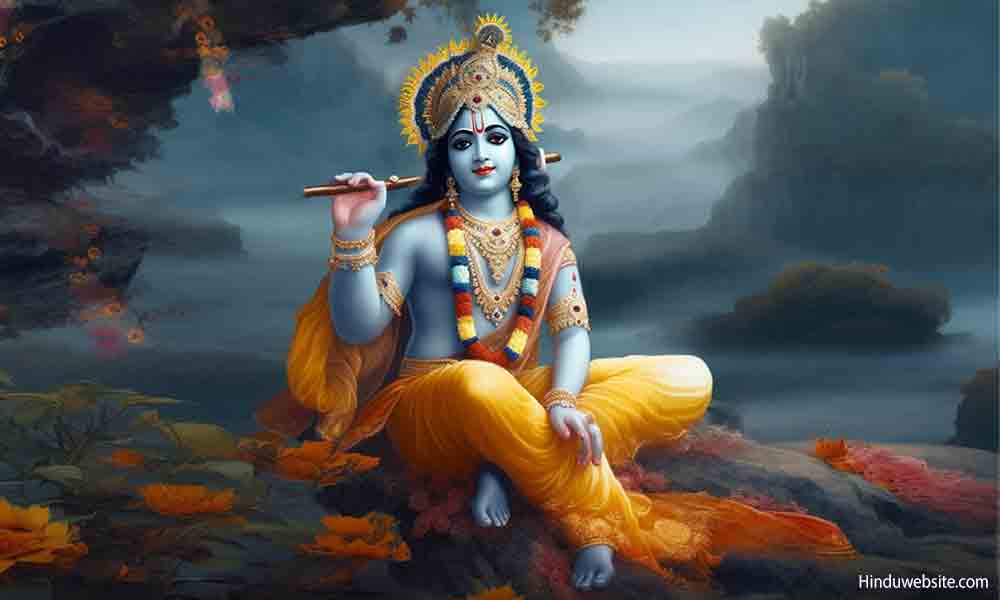
80. Which one is better? Jnana Yoga or Bhakti Yoga?

Source: Modified for use under the Pixabay Content License
Notes: I have translated the Bhagavadgita twice. The first one was a loose translation. The second one was a word to word translation with a detailed commentary. The commentary is however different from what you will find here. In this section I will share with you my thoughts about the knowledge, philosophy and wisdom of the Bhagavadgita as I understand it from my perspective. Jayaram V
Summary: All paths lead to liberation (Moksha). The Bhagavadgita offers many approaches, especially Karma, Jnana, Sannyasa, and Bhakti Yogas. It also combines aspects of these into an integrated approach. Which of them is better?
Which yoga you want to practice depends upon your essential nature. If you are driven by knowledge, curiosity, inquisitive nature, and reason, jnana yoga is suitable for you. However, if you are emotionally attached to the Supreme Being and cannot think of anything else, bhakti yoga is ideal. In contrast, if you are interested in neither knowledge nor devotion, karma yoga is the best option for you. Jnana yoga improves your knowledge and discernment and awakens vidya shaktis. Bhakti yoga strengthens your attachment and devotion to the Supreme Lord and brings you closer to your goal.
Through karma yoga, you will fulfill your obligations to God and his creation and achieve a better life in the next birth. However, you will not attain liberation unless you bring devotion and renunciation into it. You can elevate it and serve the Lord, his devotees, and righteous causes, giving up desires and attachments and performing nishkama karma. Alternatively, you can practice karma-sannyasa by giving up the fruit of your actions and offering them to the Supreme Lord as a sacrifice. If you have no interest in worldly matters, you can give up all and practice renunciation (sannyasa), performing actions necessary to maintain your body without desires and offering them to the Lord. All these approaches are effective and can lead you to liberation.
If you are motivated by knowledge and want to practice jnana yoga, you must gradually give up your desires and attachments, including the attachment to your religion, belief system, worldview, or any school of philosophy or doctrine, because, at some stage, they become obstacles to further progress. If you believe in final liberation, you must give up everything and become free. Only a free soul has the chance to attain eternal freedom from the hold of Prakriti. Even a little attachment to anything can potentially derail the effort. This is the ideal approach for those who pursue the path of knowledge or renunciation.
However, the rules are different for those who pursue the path of exclusive devotion (ananya bhakti) or single-minded devotion (kevala bhakti). Through devotion, they become attached to the Supreme Being, give up self-effort, and live entirely at his mercy. According to the Bhagavadgita, the Lord takes care of their liberation. He says in the scripture that he takes care of even the evilest people if they give up their old ways and practice exclusive devotion.
It is difficult for ignorant and impure people to practice kevala bhakti or ananya bhakti or worship the Lord without desires and attachments. Hence, although bhakti yoga seems the easiest option, it is not. Devotees must practice jnana, karma, and sannyasa yogas to purify themselves before they attain perfection in it. Lord Krishna recommends abhyasa yoga (regular and constant practice) to establish the mind in the Supreme Lord (Isvara) without distractions and worship him with selfless and unwavering love. The Lord is pleased by the devotion of all his devotees and rewards them according to their devotion. However, he rescues only those who worship the Supreme Lord (Isvara) with exclusive devotion from samsara. Those who worship gods and demigods go to them, but those who worship him only attain him surely.
Suggestions for Further Reading
- The Wisdom of the Bhagavadgita, Main Page
- The Wisdom of the Upanishads, Main Page
- What is Brahmacarya in Hinduism?
- Brahmacharya or Celibacy in Hinduism
- The Bhagavadgita, Philosophy and Concepts
- The Many Gods and Goddesses of Hinduism
- Divine Qualities Of A True Worshipper Of God
- The Bhagavadgita on Karma, the Law of Actions
- Maya, The Grand Illusion Or The Delusion Of The Mind
- Aspects, Emanations, Incarnations and Forms of God Vishnu
- Dvaita or Advaita What is the Truth?
- Symbolism in the Bhagavadgita
- The Truth About Karma
- Meaning and Definition of Bhagavan
- Brahman the Supreme Universal Lord of All
- What is Bhakti or Devotion?
- Bhakti Marg, the Path of Devotion
- History and information about Mathura and Vrindavan Temples
- True Devotion and Qualities of a True Devotee
- Essays On Sorrow And Its Spiritual Significance
- Essays On Dharma
- Esoteric Mystic Hinduism
- Introduction to Hinduism
- Hindu Way of Life
- Essays On Karma
- Hindu Rites and Rituals
- The Origin of The Sanskrit Language
- Symbolism in Hinduism
- Essays on The Upanishads
- Concepts of Hinduism
- Essays on Atman
- Hindu Festivals
- Spiritual Practice
- Right Living
- Yoga of Sorrow
- Happiness
- Mental Health
- Concepts of Buddhism
- General Essays